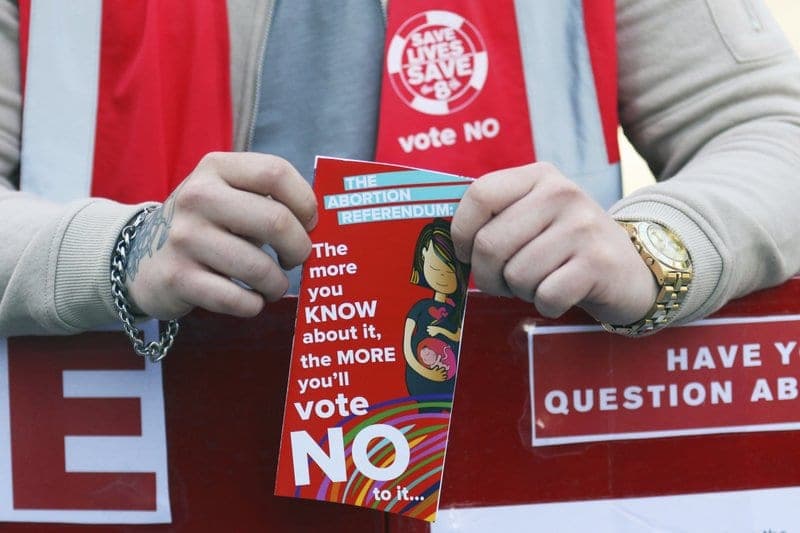LEICESTER, United Kingdom – In the wake of Ireland’s May 25 referendum legalizing abortion in the country, the Irish bishops have announced they will establish a new Council for Life next March.
The role of the new institution will be to advise and advocate for the Catholic Church in Ireland on a consistent ethic of life and care for those most at risk.
The Republic of Ireland’s Eighth Amendment – which was passed by referendum in 1983 and gave constitutional protections to the unborn – was overwhelmingly repealed in the May 25 referendum: Over 66 percent of voters supported the measure.
“‘We wish to acknowledge and pay tribute to all those who campaigned and voted to protect the lives of both mothers and their unborn children in the recent referendum,” the bishops said in a June 13 statement.
“We appreciate that this is not an easy position to hold in our contemporary culture. We are seriously concerned that making abortion so freely available will desensitize people to the value of innocent human life and will result in more abortions in Ireland,” the bishops said.
The Irish Catholic Bishops’ Conference have been holding their summer 2018 general meeting this week in Maynooth, the first gathering of the episcopate since the referendum.
In the statement announcing the establishment of the Council for Life, the bishops said the repeal of the Eighth Amendment created a “new situation” in Ireland.
“It is essential for us as a Church which cares passionately about the gift of life and wants to support both mothers and their unborn children, to seek better ways of responding to this new and very challenging reality,” the statement said. “In preparation for the establishment of this Council, bishops will consult with those already committed to, and engaged with, upholding the sanctity of life in Ireland.”
The bishops acknowledged that during the referendum debate they heard many stories of immense pain and distress experienced by women who found themselves in a crisis pregnancy.
“Their stories touched us all. Often, they felt overwhelmed and very alone. In the aftermath of the referendum it is clear that we all need to foster a culture of care, a society of support, so that when a woman finds herself in a crisis pregnancy she may find practical assistance and care,” the bishops’ statement said.
“We feel that it is important to recognize that those who worked for the retention of the protection of the right to life of the unborn in our Constitution did so out of a spirit of compassion for both the pregnant mother and her unborn child,” the statement continued. “True compassion is at the heart of the Christian Gospel and it continues to motivate us. It values and protects every human life from conception to natural death.”
One of the tasks of the new council will be to deal with the new debates that will arise in Ireland with the legalization of abortion, including conscience rights for health care professionals.
“It would be a great injustice to require doctors and nurses to participate, even by referral, in the provision of services which would be a serious violation of their conscience,” the bishops said.
The bishops also encouraged politicians who “courageously defended the right to life of the unborn child before the referendum” to continue to do so.
The Irish bishops also responded the June 12 announcement by the Irish government it would hold a referendum in October to remove the crime of blasphemy from the country’s constitution.
The bishops reaffirmed their position that the blasphemy provision in the constitution is now “largely obsolete,” and “may give rise to concern because of the way such measures have been used to justify violence and oppression against minorities in other parts of the world.”
They also reiterated that the promotion of freedom of religion and freedom of conscience for all in society “greatly enriches the social fabric of a country and is one aspect of respect for the dignity of human persons.”
They also stressed that it is vital to ensure that the rights of individuals and communities to practice and live out their faith openly are protected by law, and expressed their “solidarity with all those, throughout the world, who are experiencing persecution, and human rights abuses, because of their faith or beliefs.”













